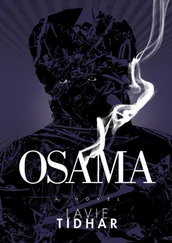“So they were not real ghosts?”
“They were echoes of the past.”
“It was amazing.”
Katulo smiled and then felt a tide of sadness. “Yes it was. But I may be the last Waker in Burundi.”
“How can that be?”
“Waking is not a skill that is easy to pass on. A person can only be taught to bring the past back to life if they can already feel the echoes left in the land.”
“How did you learn?”
“I learnt in secret, back in the days of the white outsiders. Worse than the things they did to our governments were the things they did to our beliefs. They forced our people to worship their God and learn their ceremonies. They called our ways devilry and superstition. My father was a spirit speaker. There had once been many like him, but the white outsiders killed many of them. My father kept the old ways alive by hiding, and people would travel far to ask him for advice or to see him when they were sick. He taught me how to Wake and begged me to pass on the skill.”
Shame threaded through Katulo. He and Owuro had never been able to have children and he had not remarried after she’d died. The failure of every apprentice he’d tried to teach Waking to, made him suspect that sensitivity to the land was hereditary. His determination not to betray Owuro’s memory might have doomed the ancient skill. So much of the old knowledge was already gone. Most of the medicines Katulo used were European, taken out of glass bottles and plastic vials instead of the earth and trees. They were purchased in what little trade still occurred between Burundi and Europe. The white outsiders no longer had concrete interests in Africa. They were too busy rebuilding to care about much else.
Whatever nostalgia Katulo might have, he had to admit the medicines they sent worked better than the saps and herbs his father had taught him to use. His father had considered it a betrayal when he chose to learn white medicine, but he had needed to make a living. The only way to get a job at hospitals in Bujumbura had been with a degree in Western medicine. His father had raged and called him a disgrace. Long ago, Katulo had promised himself that when he had children, he would be more understanding but the closest he had ever had to children were his apprentices.
They arrived in Bujumbura in the early evening. It was still hot but winds from the north brought temporary relief. The city streets were full of filth and litter. Broken glass, crumpled papers, rotting food and empty plastic bottles clogged the drainpipes. Every time Katulo visited the city it looked worse. Eyo and Katulo passed many rickety beggars and malnourished prostitutes.
Why do people want to live here?
Katulo pondered. The answer was bright in Eyo’s eyes. The boy was staring at the buildings with delight. In his mind, he was surely concocting a fantasy life in the city. The city had large stores with diverse wares and water that sprang from taps at the turn of a knob—much more enticing than dreary village life.
It had been a long time since Katulo had last seen Kalé. They had become friends when Katulo had lived in the city, working for a private clinic. Back then, the wounds Burundi had suffered at the turn of the century seemed to have healed. Things had progressed to the point that a friendship between a Hutu and a Tutsi was no big thing. How had the old resentments come back? Was it because they were left alone and not consciously minded?
The central city was almost entirely populated by Hutus. The Tutsis lived in outlying ghettos. It had not always been that way. The Tutsis had once been the majority. Katulo still remembered the way to Kalé’s home. They walked from the poor to the rich district. The buildings looked just as decayed and the streets were just as squalid. In some of the windows though, electric lights were on. They passed one house in which music was playing. To be able to use electricity for entertainment was an indicator of great wealth.
When they reached Kalé’s home, a security guard told them, “The Minister is not here. He is at a party.” The guard refused to give them directions but Katulo remembered the house that had been playing music. He backtracked with Eyo until they reached it. The door was open. They walked upstairs. The house was crammed with people. A servant handed them both bottles of beer. Eyo looked from the bottle in his hand to Katulo.
“It’s all right. I won’t tell anybody.” Eyo smiled and took a big gulp. His face contorted at the bad taste.
“It gets better,” Katulo assured him.
He looked around the room. It would be hard to find Kalé. He wove through the tightly packed group. At the end of the room he saw two young men who were seated at a table that seemed to be the epicentre of the celebration. One of them had probably got married, or maybe they had both won some sport? Faces Katulo could recognise surrounded them. He had seen them in newspapers though he wasn’t sure of their names. Someone at that table would surely know where Kalé was. As he went to the table, Katulo realised he should probably congratulate the two youths being honoured. He stopped a staggering man with a pimpled nose. “What is this party for?” he asked.
The man laughed and Katulo inhaled the stench of beer. “You don’t know, Old Father? Yesterday, some of those Tutsi animals were making trouble. Those boys there beat them down good. Made them run like the cowards they are.”
Katulo suddenly could not breathe. The man was still talking but he could not hear it. Shock filled him with a sensation like panic. No. No. No. No. It couldn’t be. Out of the corner of his eye Katulo saw someone approaching him. It was Kalé. He had a thick grey beard and the curls on his head were white. His facial expression was taut with urgency. “What are you doing here?”
Katulo could not answer. Eyo answered for him. “We came to see you?”
“You can’t be here. I’ll talk to you outside.” Kalé was a large-bodied man. What was once a boxer’s frame of heavy muscle was now composed of layers of fat, but he still looked menacing. Once outside, Kalé instructed Eyo, “Wait here? We need to talk alone.” He grabbed Katulo by the collar and dragged him into the darkness of an alley. “Do you know how foolish it was of you to come here? You know what might have happened if you were recognised?” Kalé paused. The concern gave way to a smirk. “Still, it’s good to see you.”
“What would have happened? Would I have been beaten for being a Tutsi, too?”
“I know you are angry, but that in there is just politics. The anti-Tutsi groups are very popular. Those boys are guests of honour and for show. They don’t have any real power.”
“They have to be punished.” Katulo’s voice had risen in volume. “That’s why I came here. They nearly killed someone.”
“Nonsense, it was just immature childishness.”
“Right now he’s in my clinic.”
“I am sorry, Katulo.”
“You should not be the one saying it. There is a lot of anger and it could escalate into disaster. Those two have to be put on trial.”
“Impossible.”
“Chama may die?”
“I told you, it’s political.”
“They are savages.”
“They did not start it. Those Tutsi boys were causing trouble.”
“Those “Tutsi” boys?”
Kalé looked down, embarrassed. “It’s complicated. You live in the rural areas. It’s simpler there. Here, there has been unrest. Tutsi labourers refusing to work, demonstrations, things like that. People are fed up.”
“That gives them the right to assault people who are protesting peacefully?”
“Peacefully? They were throwing stones, breaking windows.”
“Did they hurt anyone?”
Читать дальше












